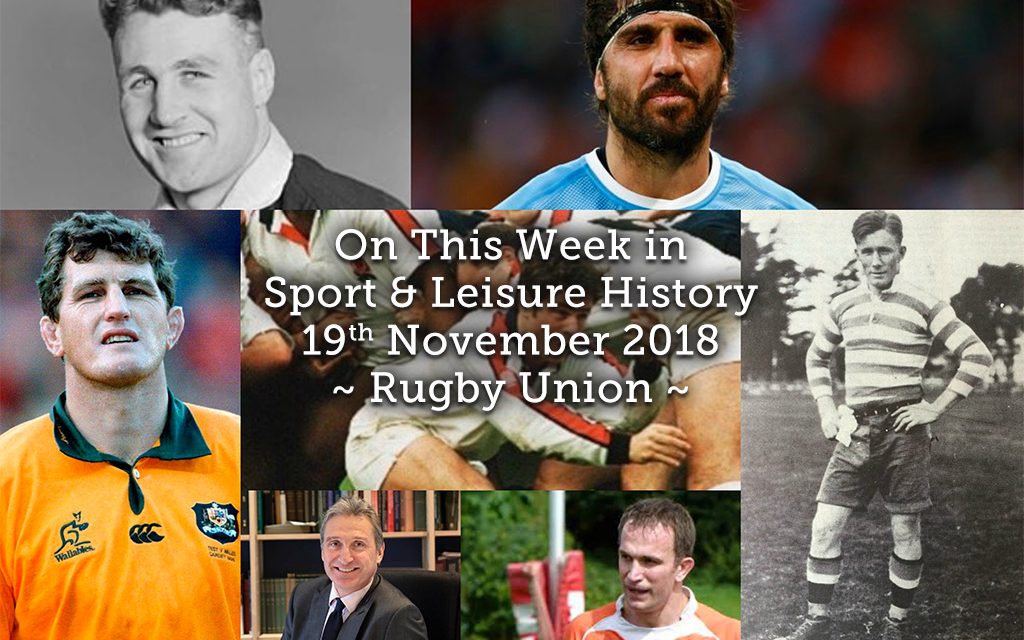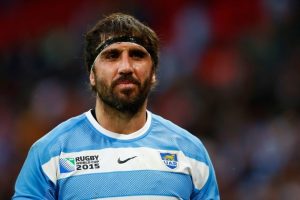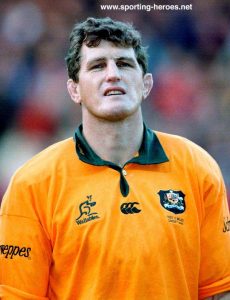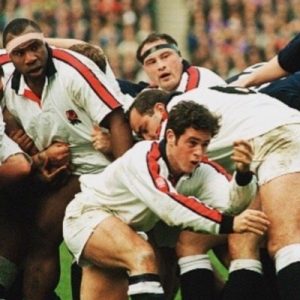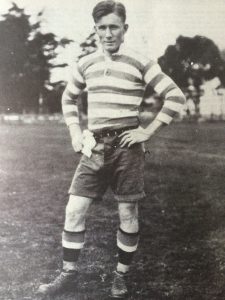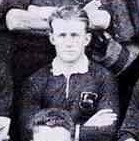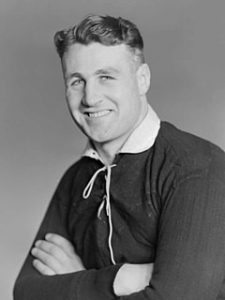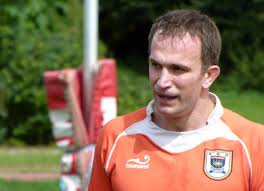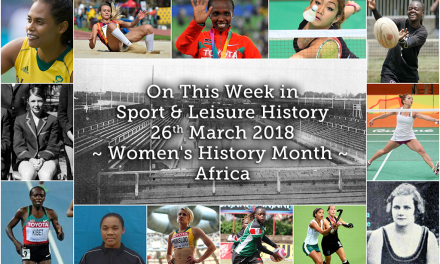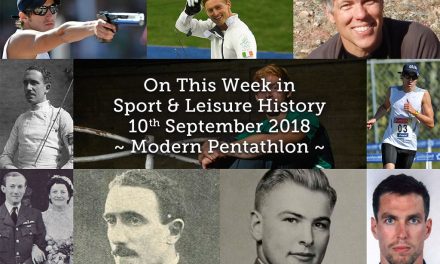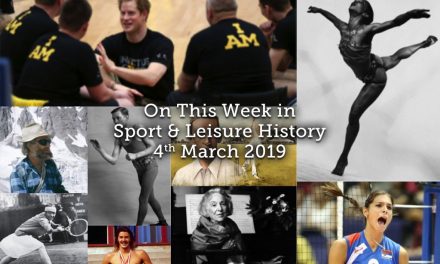As the Autumn Internationals continue Playing Pasts takes a look at 7 Rugby Union players who were born during this week in bygone years.
19th
Argentina rugby union player Juan Martín Fernández Lobbe was born on this day in 1981 in Buenos Aires. On the domestic front, he began his playing career at amateur level with Liceo Naval in Argentina before signing professional terms with Guinness Premiership side Sale Sharks, making his debut against Leicester Tigers in 2006. He opted for a switch to French Top 14 side Toulon in the summer of 2009. After two seasons as a frequent name in the Toulon back-row. He made his international debut for Argentina in 2004 against Uruguay. He was a member of the Pumas team that defeated Wales at home in a two Test series, scoring a try in one game. He also featured in the side that defeated England at Twickenham in November 2006 as well as back to back victories over Ireland the following year. And he was an integral part of the Los Pumas team in their 2007 Rugby World Cup campaign which succeeded in gaining Argentina’s highest World Cup finish of third place. He played in every game en route to the semi-final which they lost to the eventual champions South Africa. He led his country for the first time in November 2008, a game which they lost at the hands of Ireland. However he retained the captaincy in the absence of Felipe Contepomi and defeated England in front of their home crowd in 2009. He was part of the Argentine squad at the 2011 Rugby World Cup in New Zealand and 2015 Rugby World Cup in England. He was the captain of the Pumas, a position he took over after succeeding Felipe Contepomi. As captain, he played every game of 2012 Rugby Championship and four during the 2013 Rugby Championship. He also played in the 2014 and 2015 Rugby Championships. He won the French Top 14 in 2014 and the Heineken Cup in 2013 and 2014 with Toulon.
20th
Bryant Timothy “Tim” Gavin who was born in Sydney on this day in 1963 played at number 8 for the Wallabies in 47 Test matches in between 1988 and 1996, making his debit again New Zealand in Brisbane at the age of 24 on 16th July 1988. He played 83 times for New South Wales between 1988 and 1996 and captained them 30 times. He also played for Milan in Italy in the Australian off seasons between 1992 and 1995. He missed the 1991 Rugby World Cup victory as he suffered a knee injury just before the tournament but played in the 1995 tournament and the inaugural Tri-Nations Series. His last international game was at Cardiff against Wales ib 1st December 1996. Since retiring from rugby, he has farmed land outside Gunnedah, New South Wales. and been President of the New South Wales Rugby Union. He was inducted into the Australian Rugby Hall of Fame in 2018.
21st
Professor Mark David Bailey, born on this day in 1960 in Castleford, Yorkshire and s the High Master of St Paul’s School, London and professor of Later Medieval History in the University of East Anglia, was previously an England rugby footballer and toured South Africa during the Apartheid era in 1984. Educated at Ipswich School and University of Durham, he studied for a PhD in History at the University of Cambridge, which was awarded in 1987. He won the Cricket Society’s Wetherell Award in 1979 for the best public school all-rounder and played for the NCA Young Cricketers in 1980.The same year he made his debut in the Minor Counties for Suffolk, for whom he played until 1991 and served as captain between 1988–90. Mark played rugby for Durham University and the University of Cambridge, captaining the latter in the 1983 and 1984 Varsity matches. He won four Blues at Cambridge. He later served as Secretary of CRUFC, as its representative on the Rugby Football Union, and since 2010 has been President of the club. Bailey played on the wing for Bedford in 1981–2 and for London Wasps between 1984–90, winning the premiership in the 1989–90 season. He also received international honours for England, capped seven times, and played for the Barbarians invitational side. On 16th June 2003, he was honoured with Durham University’s Palatinate Award for Sport.
22nd
Born on this day in 1971 was Irish born, English scrum half – Kyran Paul Patrick Bracken. His father was a dentist and his mother play hockey for Ireland, he was brought up in Liverpool and educated at St. Edward’s College, and later at Stonyhurst College in Lancashire, where he was coached by former England Rugby Union Head Coach, Brian Ashton. He attended a trial for Liverpool FC and scored three goals. He also flirted with the idea of playing rugby league for St. Helens. After school he read Law at the University of Bristol whom he represented at rugby union and later qualified as a solicitor. He was turned down by Ireland as ‘not good enough’ but signed up by Bristol. He made his England debut in November 1993 against the All Blacks, where a stamp from Jamie Joseph seriously injured his ankle, putting him out of action for three months and leaving him with a permanent weakness. He started the 1994 Five Nations, but was dropped halfway through in favour of Dewi Morris. He missed the summer tour to South Africa, studying for law exams, but played in the 1995 Five Nations. Injury kept him out of the 1995 World Cup. He joined Saracens in 1996 and was part of the team that won the Tetley’s Bitter Cup against Wasps in 1998. He missed out on selection for the 1997 British and Irish Lions tour to South Africa in favour of Matt Dawson and Austin Healey but was called up as injury replacement for Rob Howley but did not play in the tests. He then became an irregular scrum half for England, with Dawson generally having the upper hand but being frequently injured. Bracken himself had a serious back injury that kept him out for most of the 1999-2000 season, including the 1999 World Cup. He missed out on selection for 2001 Lions tour to Australia, instead captaining England on a three-match development tour of North America. By then he was mostly having to compete with Matt Dawson as first-choice “number 9”. In 2003 he played in the summer tour beating Australia and New Zealand. He appeared four times for England during the 2003 World Cup, mostly as a substitute or blood replacement, becoming a world-cup winner, on his 32nd birthday, as England lifted the trophy. He won his 50th cap against Wales in the quarter-final and gained his last cap in the semi-final against France.
23rd
Benjamin Louwrens Osler, South African rugby player was born on this day in 1901. He was first selected to play on 16th August 1924 against Britain when they toured South Africa. This was the first of his 17 consecutive Test appearances for South Africa. He played in the other three Tests of Britain’s tour, and contributed to South Africa winning three of the four Tests. The only Test of the series the Springboks did not win was their 3–3 draw in Port Elizabeth where Osler was temporarily knocked out. The next Springbok series was hosting New Zealand in 1928. The teams had met once before in a Test series, drawn 1–1 (with 1 match drawn) in New Zealand in 1921. The first Test was played in Durban and the Springboks won 17–0, with Osler scoring a world record 14 points in the match. His first overseas tour was in 1931 when he captained the Springboks on their 1931–32 tour to the Home Nations. He captained the team and played in all four Tests; playing against England, Ireland, Scotland and Wales. Osler’s Springboks became the second South African team, and only second of all time, to win a Grand Slam. In 1933 Osler played in his last ever Test series when Australia toured South Africa. They played a five match series and Osler played in all five Tests. During the series he scored a try, conversion and drop-goal. Osler is remembered as a fly-half who played a kicking game, his accuracy when kicking allowed South African teams to play a forward oriented game, commonly referred to as ten-man rugby. His contributions to international rugby were acknowledged with his induction the into International Rugby Hall of Fame in 2007 and the IRB Hall of Fame in 2009, he died on 28th April 1962.
24th
Kevin Lawrence Skinner, New Zealand rugby player was born today in 1927. Born in Dunedin, Skinner was educated at Christian Brothers School, Dunedin and St. Kevin’s College, Oamaru where he played in the first XV in 1943 and 1944. He captained the side in the latter year. In 1945 he played senior rugby for the Dunedin Pirates as lock. As a boxer, he won the Otago heavyweight championship in 1946 and won the New Zealand heavyweight title in 1947. He played nine matches for the Otago representative rugby union team in 1947, including the team’s successful Ranfurly Shield challenge against Southland. He also played in the South Island team and represented Otago again in 1948. He was in the South Island team each year from 1950 to 1953. He participated in the New Zealand trials in 1948, 1950, 1951 and 1953. He played for a combined Bay of Plenty-Thames Valley-Counties side against the Springboks in 1956. He was selected for the 1949 All Black tour of South Africa. He continued playing for the All Blacks and was captain in the 1952 series against Australia. However Bob Stuart (also an old boy of St. Kevin’s College, Oamaru) was captain of the 1953/4 All Blacks in their tour of Great Britain and France. Skinner also went on that tour and played in 27 games including all five tests. He was one of the key players. Skinner retired at the end of the 1954 season after equalling Maurice Brownlie’s record of 61 All Black appearances but he played again for the All Blacks for the final two tests against South Africa in 1956, extending the record to 63. Both those tests were won by New Zealand. Skinner has been described as “a skilled lineout No.2, expert rush stopper, strong scrummager and extremely mobile” and “one of the very best props New Zealand has produced.” He was inducted into the New Zealand Sports Hall of Fame in 1996. He died in Auckland on 21st July 2014 at the age of 86.
25th
German rugby union international Steffen Thier was born on this day in 1980. He began his career in 1994, playing for the RG Heidelberg in the Rugby-Bundesliga. He made his international debut for Germany against Moldova on 11th November 2006 at Chisianau where the German team were defeated 26-24. His final game for his country came on 24th November 2007 again against Moldova, but at “home” in Heidelberg, this time Germany scored a resounding victory 35-5. He won the Germany rugby union championship with his club in 2006 and 2007 and the rugby union cup in 2004. In the past, he has also captained the German sevens side.

